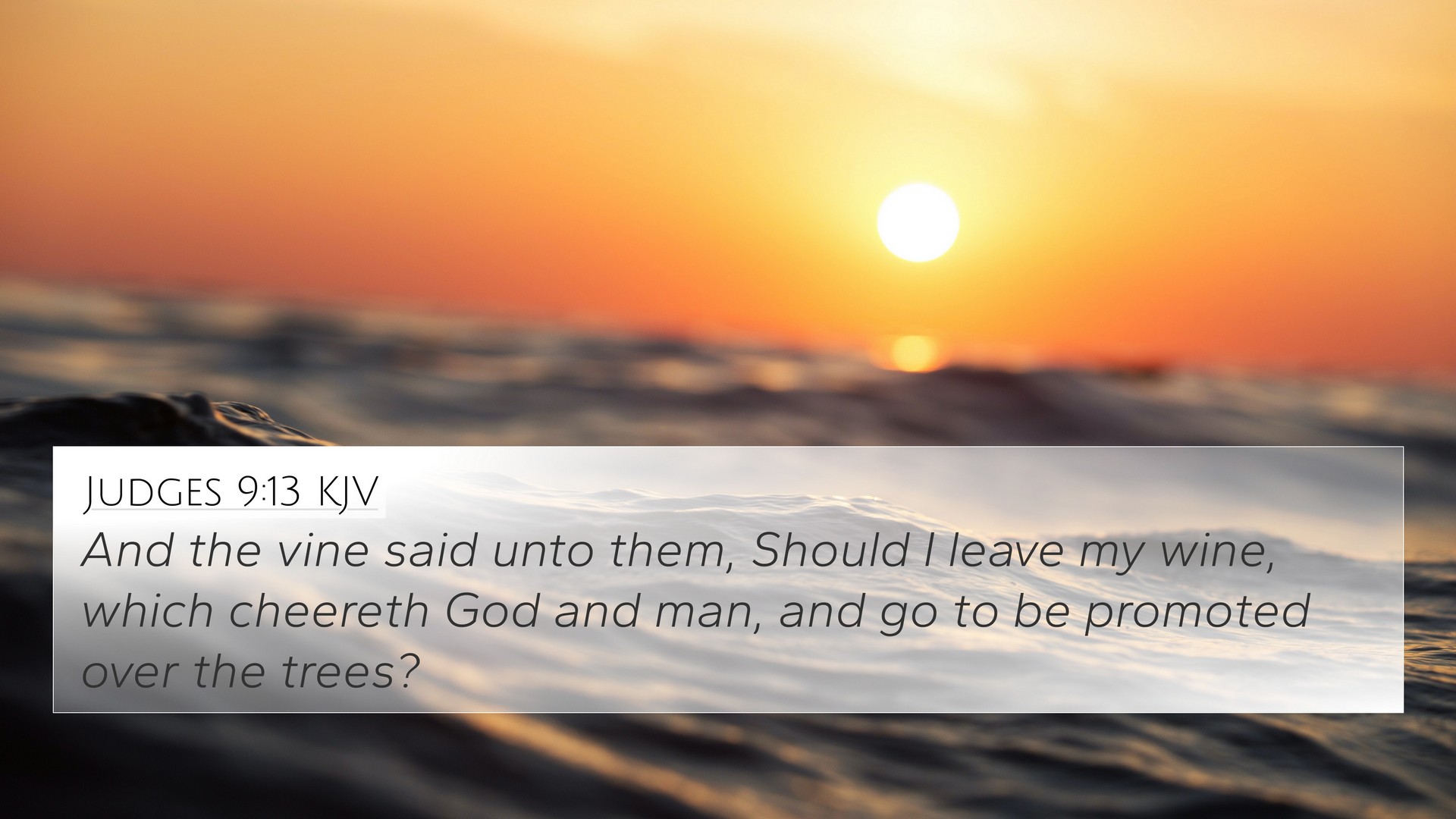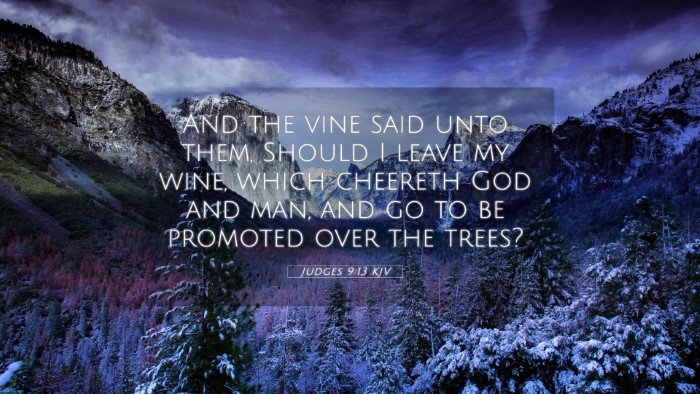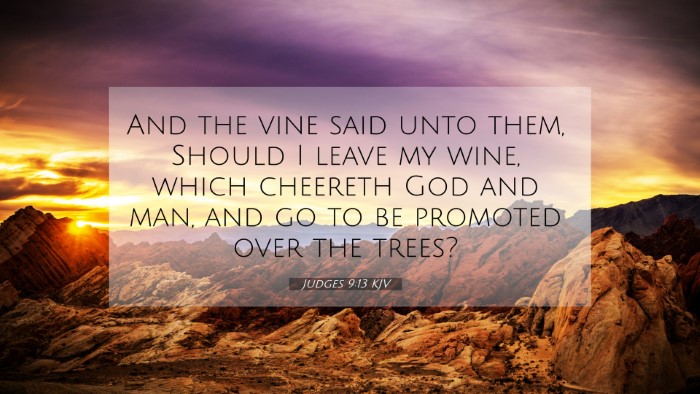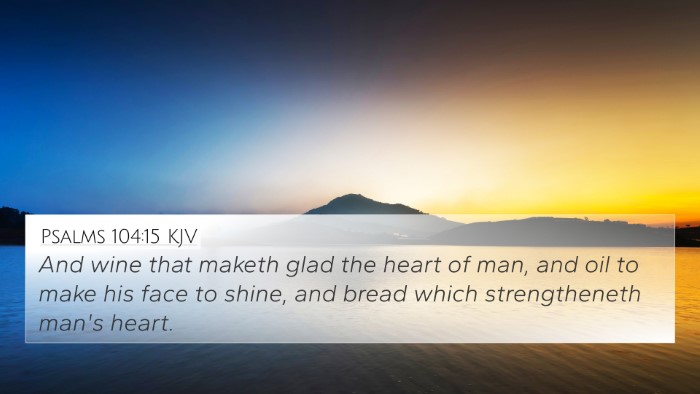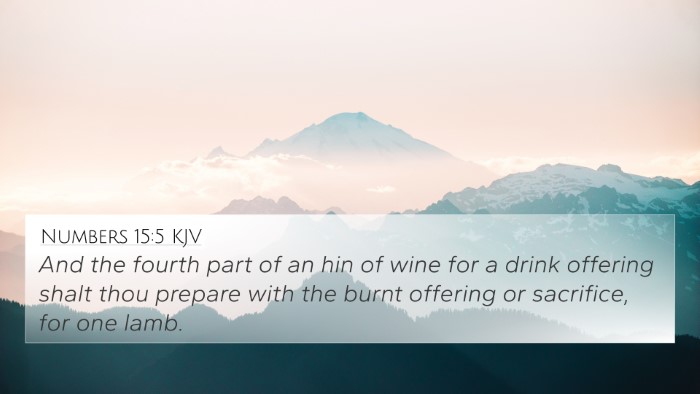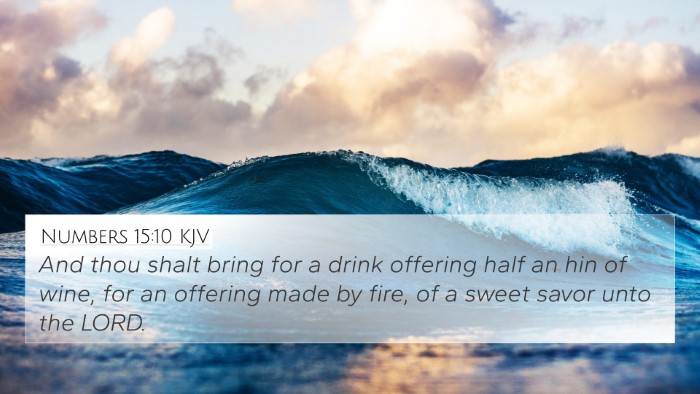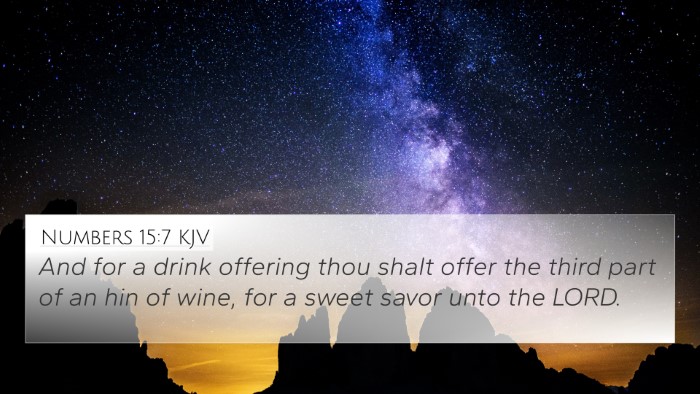Understanding Judges 9:13
Judges 9:13 states: "But the vine said to them, 'Should I leave my wine, which cheers both God and man, and go to sway over the trees?'" This verse is part of the parable of the trees seeking a king, symbolizing the foolishness of seeking power over the essential aspects of life and community.
This parable uses various trees to illustrate the qualities of leadership and the consequences of choosing a ruler. The vine's response highlights the importance of joy and fruitfulness in leadership.
Summary of Insights from Public Domain Commentaries
Matthew Henry's Commentary
Matthew Henry explains that in this verse, the vine represents those who contribute positively to their community rather than seeking power for its own sake. The vine's willingness to not abandon its fruitfulness for a crown shows it values what is truly important.
Albert Barnes' Notes
Albert Barnes notes that the vine’s reluctance to leave its purpose illustrates a common theme in the Scriptures about the nature of good leadership. He emphasizes that true leaders are often those who do not seek power but are recognized for their contributions to the people's well-being.
Adam Clarke's Commentary
Adam Clarke points out the symbolic nature of the vine as it reflects the pleasurable aspects of life that should not be sacrificed for ambition. Clarke highlights the folly of the trees in overlooking the important qualities good leaders must possess, such as a commitment to nurture rather than dominate.
Key Themes and Lessons
- Valuing Contributions: Leadership should not come at the expense of essential life-giving aspects.
- Joy vs. Power: The vine prefers to remain fruitful and joyous instead of becoming a ruler.
- Leadership Choices: The pursuit of power can lead to neglecting one’s true purpose.
- True Leadership Qualities: Leaders should be nurturing, not merely ambitious.
Cross-References for Judges 9:13
Judges 9:13 connects to several other scriptures that explore themes of leadership, the value of fruitful living, and the potential folly in the pursuit of kingship. Here are notable cross-references:
- 1 Samuel 8:5-7: The Israelites demand a king, leading to God's warning about the implications of royal governance.
- Proverbs 29:2: When the righteous are in authority, the people rejoice; but when the wicked rule, the people mourn.
- Matthew 20:26-28: Jesus teaches that greatness in leadership comes from serving others, not from lording over them.
- Luke 22:25-27: The greatest among you should be like the youngest, and the leader like the one who serves.
- John 15:5: Jesus describes himself as the vine, emphasizing the importance of remaining connected to Him to bear fruit.
- Galatians 5:22-23: The fruit of the Spirit includes joy, aligning with the vine's purpose of providing cheer.
- Psalms 104:15: This psalm praises God for providing wine that gladdens the heart, akin to the vine's offering.
- Isaiah 5:1-2: A song of the vineyard highlights God’s care for His people, linking to the metaphor of fruitful vines.
- Philippians 2:3: Encouragement to consider others more significant than oneself, reflecting the vine’s attitude against proud ambition.
- 1 Corinthians 3:7: Where Paul discusses the significance of God's role in growth, paralleling the vine's vitality and purpose.
Understanding the Thematic Connections
This passage invites readers to reflect on the deeper connections between leadership and purpose within the biblical text. It highlights how various scriptures interact to create a comprehensive view on the nature of effective governance, the importance of joy and contribution, and the essential qualities that leaders must embody.
Conclusion
Judges 9:13 serves as a profound lesson in the biblical narrative about what constitutes true leadership. Understanding its meaning through the lens of public domain commentaries enriches one's study of the Scriptures, revealing the imperative of maintaining one’s purpose in the pursuit of leadership.
